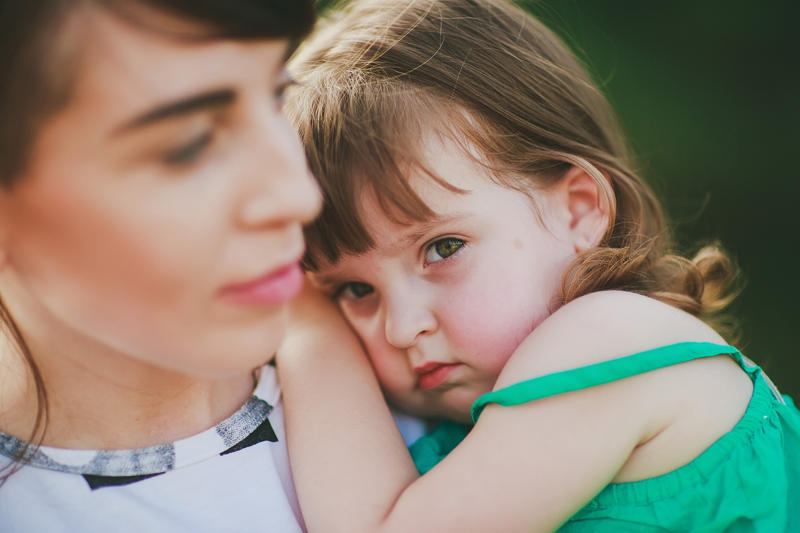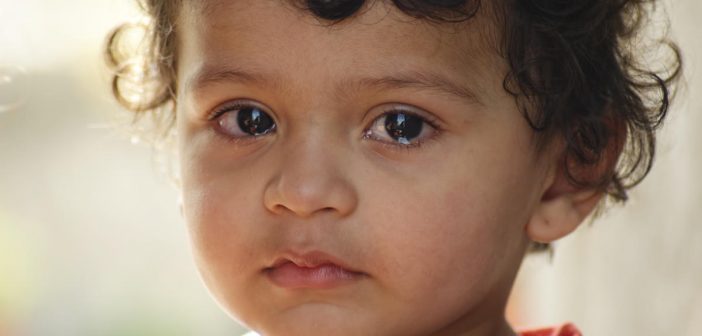Be it of a family member, a caregiver or of a pet, children are mostly unable to completely comprehend the meaning of loss. But the lack of awareness of what death means in no way implies that the loss is any less difficult for a child than it is for an adult.
Most children are conscious of loss. They usually encounter the concept through stories, cartoons, jokes and TV shows. But personally experiencing loss can be a very upsetting and confusing process for children. Sometimes, therefore, parents may show a tendency to avoid talking about death to children hoping they don’t remember the turbulent times. But ignoring a confrontation is not a resolution, as children will form a lasting impression of how the situation was dealt with.
You can bring up the concept of death in everyday life by taking advantage of a less emotionally charged situation. For example on observing the death of a bird or lizard on the side of a road can be a neutral time to bring up the concept of death.
While dealing with a situation of loss, it is important to recognize that children react to loss very differently than adults. There might be feelings of guilt, anxiety, or depression more than sorrow or grief. At times children might act out their emotions while at other times they may seem completely unaffected. Play might become a defence against the hurtful feelings associated.
 Further, the meaning associated to death will also be different for different age groups. For example, a preschooler may think of death in a limited manner, like sleeping. They might also try to ‘be-good’ to get the person back. Feelings of guilt and personal blame can be very common at this age. A school going child (age 6-12 approximately) might have a better idea about finality of death and show a range of either internalising behaviours (guilt, anxiety, physical symptoms, withdrawal) or externalising behaviours (aggression, clinginess, outbursts).
Further, the meaning associated to death will also be different for different age groups. For example, a preschooler may think of death in a limited manner, like sleeping. They might also try to ‘be-good’ to get the person back. Feelings of guilt and personal blame can be very common at this age. A school going child (age 6-12 approximately) might have a better idea about finality of death and show a range of either internalising behaviours (guilt, anxiety, physical symptoms, withdrawal) or externalising behaviours (aggression, clinginess, outbursts).
As a parent, you need to help your child express what they are feeling. By drawing and sketching exercises, reading stories that are about life and death, or having thoughtful conversations, parents can help children emote what they are experiencing. Activities like writing a letter to the person who is no more, or releasing a balloon can also be very cathartic. It is also important to explain that death is an eventuality and there is no one to blame. Expressing in a healthy manner can help prepare the child for effectively coping with difficult situations in the future as well.
Children, especially pre-pubescent aged, have a lot of questions and ask about details related to death. You need to make your child feel that you are there to talk to them. While answering questions, be cautious to be developmentally appropriate. Don’t tell the child what they can’t comprehend. Be careful while using euphemisms. If you tell the child that their loved one has fallen into ‘forever sleep’, they might feel scared of falling into such sleep. This can create bedtime problems. And it is okay not to be able to answer everything. The loss is as hurtful for you if not more. So answer what you can, but make the child feel that you are there for him/her. At times sharing your own feelings can be a good way to communicate about the loss.
There may be instances that the child misunderstands things, or even needs professional help in dealing with loss. Keep your eyes open to this. If the reactions are extremely intense or very prolonged, counselling and support services may be helpful for you and your child.
Attending a funeral can prove to be very threatening and harsh to a child. But being a part of a grieving ritual or a memorial service can help them accept and deal with the loss as adults do. So be careful and perceptive of what will help your child and not be harmful to their emotional well-being. For your well-being and for your child, try to stick to daily routines as was before the loss. Children find comfort in routines. They are predictable and give the child space away from the grief. It will also give you some time alone.
Being a parent, and going through the process of loss of a loved one yourself, can be very exhausting. You need to take care of your self first and give importance to your own grief. As a parent you need to be clear, transparent and concise. Provide a safe environment where your child feels free to express. You won’t always be able to protect your child from the agony of loss, but you can help them feel safe.








2 Comments
Hi Tamanna,
Really love what you write!
Keep going!
Thank you!